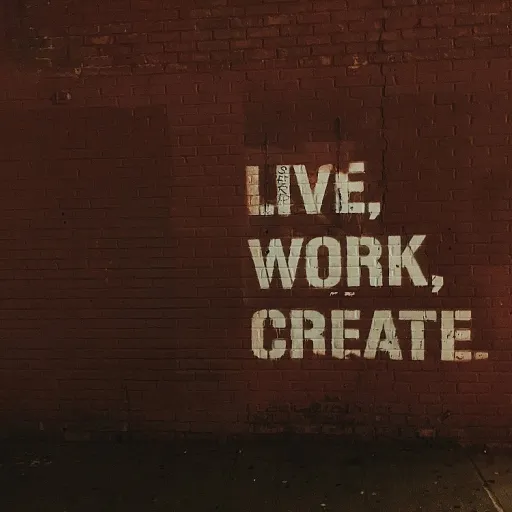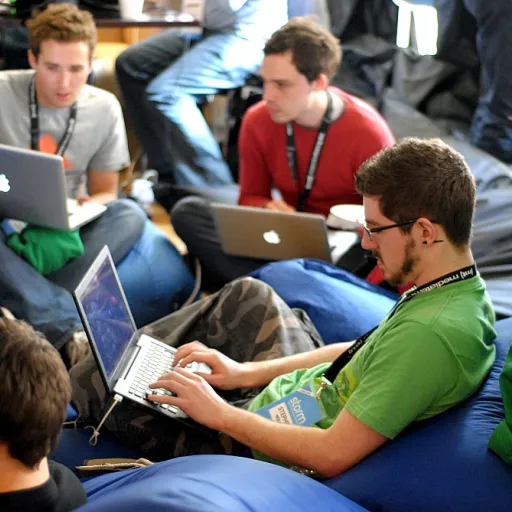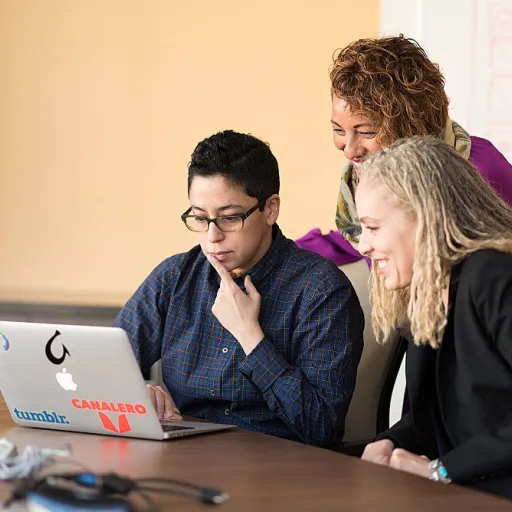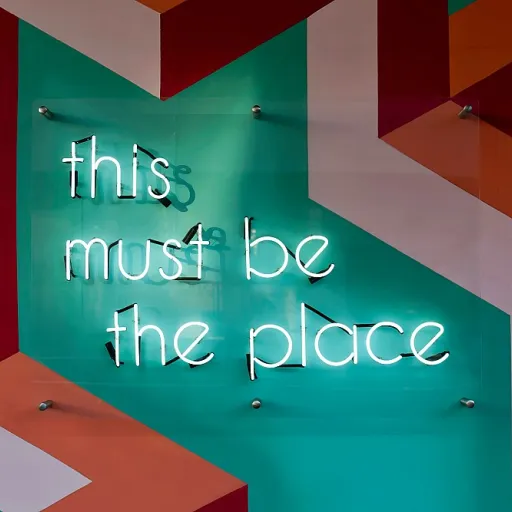
Defining a working interview and its purpose
What Makes a Working Interview Different?
A working interview is not your typical job interview. Instead of just answering questions, a candidate is invited to perform actual tasks related to the role. This gives both the employer and the candidate a real sense of what the job involves and how the candidate’s skills match up. The interview process often includes hands-on assignments, skills tests, or even a short period working alongside the team. This approach helps employers assess candidate abilities in a real work environment, not just on paper.
Why Employers Use Working Interviews
Employers are increasingly turning to working interviews to bridge the skills gap. Traditional interviews can make it hard to evaluate candidate skills and determine if someone is a good fit for the team. By observing candidates as they work, employers get a clearer picture of how they handle tasks, communicate, and adapt to the office culture. This method is especially useful for roles where practical skills and teamwork are essential.
- Real-world assessment: Employers can see how a candidate performs job tasks in real time.
- Better fit: Both sides can evaluate if the role and team are a match.
- Immediate feedback: Candidates receive a sense of what to expect from the job and the employer’s expectations.
Legal and Practical Considerations
It’s important to note that working interviews come with legal considerations. For example, candidates should be paid for their time, and the distinction between an employee and an independent contractor must be clear. Employers need to ensure their interview process is fair and complies with labor laws. Candidates should ask about compensation and clarify their status during the interview working period.
For a deeper look at how companies are navigating the legal and practical sides of sourcing talent and bridging the skills gap, check out this resource on navigating the complexities of sourcing and outsourcing in bridging the skills gap.
How working interviews address the skills gap
Real-World Skills Assessment in Action
Traditional job interviews often focus on what a candidate says they can do, but working interviews go a step further. They allow the employer to see how a candidate performs actual tasks related to the role. This hands-on approach helps bridge the skills gap by providing a clear picture of whether the candidate’s skills match the job requirements.
- Direct observation: Employers can assess candidate skills in real time, watching how they approach work, solve problems, and interact with the team.
- Practical tasks: Instead of relying on resumes or skills tests alone, candidates complete tasks similar to what they would do as an employee. This helps both sides understand if the fit is right.
- Immediate feedback: The interview process offers a chance for candidates to receive feedback on their work, which can be valuable for professional growth.
Reducing Mismatches and Improving Hiring Decisions
One of the biggest challenges in hiring is making sure the person you bring on board can actually do the job. Working interviews help reduce the risk of hiring someone who looks good on paper but may not have the practical skills needed. This approach also gives job candidates a chance to show what they can do beyond a standard job interview.
Employers can evaluate candidate performance in a real office environment, checking for both technical skills and cultural fit. Candidates, in turn, get a better sense of what to expect if they join the team. This mutual understanding helps close the gap between expectations and reality, leading to better hiring outcomes.
Legal and Practical Considerations
While working interviews are valuable, it’s important to ensure the process is fair and legal. Employers should clarify whether the interview will be paid and if the candidate is considered an independent contractor during the assessment. Clear communication about the tasks, expectations, and compensation helps avoid misunderstandings and keeps the process transparent for all parties involved.
For more on comprehensive strategies to bridge the skills gap, see bridging the skills gap with comprehensive talent strategies.
Benefits of working interviews for job seekers
Real-World Experience for Job Candidates
For many job seekers, a working interview offers something a traditional job interview cannot: the chance to show their skills in action. Instead of just talking about what you can do, you get to demonstrate your abilities by performing actual tasks related to the role. This hands-on approach helps candidates stand out, especially if their resume alone doesn’t fully capture their strengths or potential.
Immediate Feedback and Learning Opportunities
During a working interview, candidates often receive direct feedback from the employer or team members. This can be invaluable for understanding what employers expect and where your skills might need improvement. The process can feel like a skills test, but it’s also a learning experience. You see firsthand how your work style fits with the company’s needs and culture, and you can adjust your approach in real time.
Showcasing Soft Skills and Team Fit
Employers use working interviews to assess more than just technical abilities. They observe how candidates communicate, solve problems, and interact with the team. This gives job seekers a chance to highlight soft skills that might not come through in a standard interview. If you’re wondering what to expect, be prepared to show not only what you know, but how you work with others and adapt to new environments.
Building Confidence and Reducing Nerves
For some, the traditional job interview can feel artificial and stressful. A working interview, on the other hand, lets candidates focus on the work itself. This can help reduce nerves and build confidence, as you’re judged on your actual performance rather than just your answers to interview questions. It’s a more authentic way to demonstrate your value to a potential employer.
Improving Your Skill Set
Even if you don’t get the job, a working interview can highlight areas for growth. You might discover new tools, processes, or expectations in the industry. For those looking to bridge the skills gap, this experience can guide your next steps in mastering the sequence of skill acquisition in programming or other fields. For more on how to develop your skills effectively, check out this guide on mastering the sequence of skill acquisition in programming.
- Chance to demonstrate real skills and work ethic
- Opportunity to receive feedback and learn
- Ability to showcase fit with the team and company culture
- Less pressure than a traditional interview for some candidates
- Insight into what employers look for in a potential employee
Challenges and considerations for candidates
Potential Hurdles and What Candidates Should Know
Working interviews can be a valuable way for job candidates to showcase their skills in a real work environment, but they also come with unique challenges. Understanding these considerations can help candidates prepare and protect their interests during the interview process.- Legal and Payment Issues: Not all working interviews are structured the same way. In some cases, candidates may be asked to perform actual tasks or projects. It’s important to clarify whether the interview will be paid, as laws around paid working interviews and independent contractors vary by region. Candidates should ask the employer about compensation and ensure the arrangement complies with local labor laws. If you’re unsure, research whether interviews are legal in your area and what rights you have as a candidate.
- Role Clarity: Sometimes, the tasks assigned during a working interview may not fully reflect the actual job. Candidates should ask for a clear outline of what work they’ll be doing. This helps set expectations and ensures the skills being assessed match the role you’re applying for.
- Pressure to Perform: Unlike a traditional job interview, a working interview puts candidates in the spotlight to demonstrate their abilities in real time. This can be stressful, especially if you’re not familiar with the office environment or the team. Remember, employers are not only looking for technical skills but also for how you fit with the team and adapt to new tasks.
- Feedback and Communication: It’s not always clear how feedback will be given after a working interview. Candidates should ask the potential employer about the next steps and how their performance will be evaluated. This helps manage expectations and provides a chance to learn from the experience, whether or not you get the job.
- Confidentiality and Intellectual Property: Sometimes, candidates may be asked to work on real company projects. It’s wise to ask about confidentiality agreements or what will happen to any work you produce during the interview. This protects both the candidate and the employer.
Tips for succeeding in a working interview
Preparing for a Real-World Assessment
A working interview is not your typical job interview. Instead of just answering questions, you’ll be asked to perform tasks similar to what you’d do in the actual role. This gives both the candidate and the employer a real sense of how you work, your skills, and your fit with the team. Here’s how to make the most of this chance:
- Understand the Role: Before your interview, research the job description and the company. Know what tasks are likely to be part of the working interview. This helps you anticipate what skills tests or assignments you might face.
- Clarify Expectations: Ask the employer what the interview process will involve. Will you be shadowing an employee, working independently, or collaborating with the team? Knowing what to expect helps you prepare mentally and practically.
- Showcase Your Skills: Treat every task as a chance to demonstrate your abilities. Focus on accuracy, efficiency, and problem-solving. Employers use working interviews to assess candidate skills in real time, so attention to detail matters.
- Communicate Effectively: Don’t be afraid to ask questions if you’re unsure about a task. Clear communication shows you’re engaged and willing to learn, which is valuable in any work environment.
- Be Professional: Arrive on time, dress appropriately for the office or work setting, and treat everyone with respect. Even if the interview will be informal, professionalism is always noticed.
- Know Your Rights: Make sure you understand whether the working interview is paid. In some regions, unpaid working interviews may not be legal, especially if you’re performing actual work tasks. Clarify your status—whether you’re considered an employee or an independent contractor during the process.
- Reflect on the Experience: After the interview, consider if the job and the team are a good fit for you. The working interview is as much about you evaluating the potential employer as it is about them assessing you.
Approaching a working interview with preparation and confidence can help you stand out as a strong candidate. Remember, it’s not just about technical skills—it’s also about how you interact with others and adapt to the work environment.
What employers look for during a working interview
Key Qualities and Actions Employers Observe
Employers use a working interview to get a real sense of how a candidate will perform in the actual role. Unlike a traditional job interview, this process allows them to see how candidates handle real tasks and interact with the team. Here’s what employers typically focus on:- Technical skills: Can the candidate complete the work required for the job? Employers look for evidence that the candidate’s skills match what’s needed for the role, often through hands-on tasks or skills tests.
- Problem-solving ability: How does the candidate approach challenges or unexpected issues during the interview working session? The ability to adapt and find solutions is highly valued.
- Communication and collaboration: Employers pay close attention to how candidates interact with potential colleagues. Are they clear in their communication? Do they ask questions when needed? Can they work as part of a team?
- Work ethic and attitude: A working interview gives employers a chance to see if the candidate is punctual, motivated, and professional. They also assess whether the candidate’s attitude fits the company culture.
- Learning agility: Can the candidate pick up new tasks quickly? Employers want to see if the candidate can learn on the job and adapt to new processes or tools.












